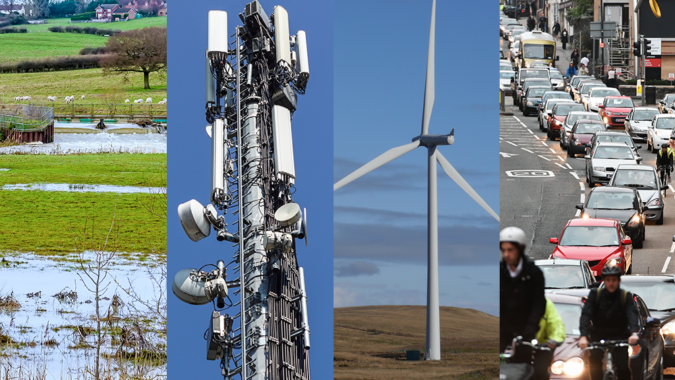One of the first questions that people ask me when discussing my work is: “what do you mean by drought?”
In working on our new water supply report Preparing for a drier future, I have assessed the implications of low rainfall on England’s water supply. What struck me is that water restrictions are an abstract concept to most people in England, as they’re still a relatively rare occurrence. For me, growing up in Sardinia, rota cuts during the summer were the norm until the late ‘nineties.
Those who could afford them had water tanks on top of their houses, but even so it was common to run out of water after someone took a long shower or ran the washing machine at the wrong time. Dragging bottled water up the stairs to my flat in 30 degrees heat is not great fun.
This experience taught me not to take reliable, clean water supply water for granted – even after I moved to England. I am probably bit of an exception: two-thirds of the people we surveyed for this report remain confident that England’s water infrastructure is fit for the future. Yet, there’s a 1 in 4 chance over the next 30 years that at least one water company will have to take emergency measures to cope with drought, including rationing.
Even where water rationing isn’t required, we routinely rely on “emergency permits and orders”, which allow more water to be taken out of the environment that we normally would, to ensure sufficient supplies to homes. Between 1976 and 2007, water companies used such measures around 600 times.
While we’re used to images of rivers drying up and disappearing overseas, we often don’t consider that one in 10 rivers and more than a third of groundwater bodies in England are under pressure because of over-extraction. Keeping this water in the environment isn’t just good for animals and plants: it sustains our rivers as a useable resource.
Wouldn’t it be easier – as well as cheaper and more sustainable – to make sure that there’s more water in the first place and we use it more wisely, well before a drought happens?
That’s the starting point of the analysis I have carried out for this report. The evidence highlights the potential costs, and social and environmental risks, of emergency action to keep water supplies flowing during a drought. There is a compelling economic argument for investing in increased resilience to drought conditions.
This can only be done effectively through long-term investment in supply infrastructure as well as reducing the amount of water wasted through leakage and helping people manage their consumption through metering and water efficient appliances – a joined-up solution in which water companies and customers both play a role. As a customer, I want to see my water company do its best to reduce water losses. But, I also want to be part of the solution. So I am open to being charged a fair price for the amount of water I use, while also doing all I can to use it wisely.
There seems to be agreement on the issue as well as on the need to find a solution. Many people from the water companies I spoke to are passionate about providing the best solution for their customers and the environment, and are pushing to move the sector in the right direction.
However, water doesn’t stop at company borders. The most effective solution requires stepping back and taking a strategic view of the best value, most resilient and most sustainable way of providing water supply in the long term to all customers in England, regardless of which company’s bill they pay. That idea is at the heart of this report.
My hope is that this report will help ensure that future generations can continue to access high-quality water and enjoy a thriving environment, despite the pressures from climate change and population growth – and that we start taking the water we have a little bit less for granted.
Manuela di Mauro is the Water Lead for the Commission.



